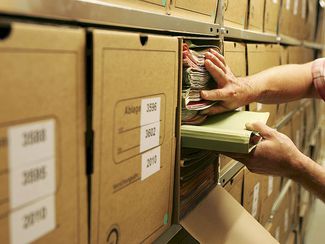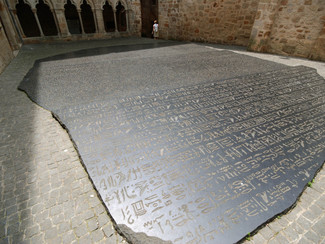-
BASE
subnavigation
BASE
- About us
- Laboratorium
- Career
- Laws and regulations
- Legal Basis
- Manual on Reactor Safety and Radiation Protection
- 1A Nuclear and radiation protection law
- 1B Other laws
- 1C Transport law
- 1D Bilateral agreements
- 1E Multilateral agreements
- 1F EU law
- 2 General administrative provisions
- 3 Announcements of the BMU and the formerly competent BMI
- 4 Relevant provisions and recommendations
- 5 Nuclear Safety Standards Commission (KTA)
- 6 Key committees
- Annex to the NS Handbook
- A 1 English translations of laws and regulations
- Dose coefficients to calculate radiation exposure
- BASE topics in the Bundestag
-
Topics
subnavigation
Topics
Nuclear Safety
Interim Storage / Transport
-
News
subnavigation
Knowledge preservation and long-term documentation
Long-term documentation is pivotal in preserving information and knowledge about repositories over a long period of time. In accordance with its legal mandate, BASE is in charge of permanently storing analogue and digital information regarding the interim and final storage of radioactive waste.
- The core tasks of long-term documentation include the collection and preservation of data and documents that are or may become significant. How does BASE go about analogue and digital archiving?
- Finding and understanding the processed and cross-linked information is complemented by knowledge management measures. What activities contribute to the utilisation of knowledge about nuclear waste disposal?
- The preservation of memory is the consequence of our ethical obligation to future generations. How can knowledge about the existence of a repository be preserved in the long term? What role could nuclear semiotics play in this?
- Some of the public proposals for long-term documentation seem rather bizarre. Could "radiation cats" really serve as a warning of a radioactive hazard? And what is behind the so-called nuclear priesthood?




